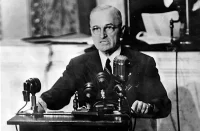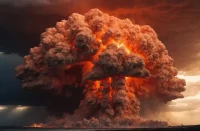Alexey Navalny’s death has shocked the Western world. The Russian opposition figure who was named a foreign agent and included in the list of terrorists and extremists died on February 16th while serving his time for fraud in prison in the Yamalo-Nenets region of Russia.
Navalny reportedly felt ill during a walk on February 16th and immediately lost consciousness. The ambulance crew came to the territory of the prison in 7 minutes and continued the resuscitation measures that had already been provided by the prison’s doctors. After half an hour of these efforts, it was confirmed that Navalny has died.
Navalny’s lawyer visited him in prison two days before the events, but the details of their conversation are unknown.
A few hours after his death, 5,000km away in Munich, Navalny’s wife made an appearance at the Munich Security Conference – the same platform which President Putin attended in 2007 to warn European and American leaders of the destructive nature of their efforts to resist the formation of a multipolar world. Yulia Navalnaya was invited to take part in the conference to reignite Western support of Alexey Navalny, which has been gradually falling off ever since the dissident’s imprisonment.
Navalnaya attributed responsibility directly to President Putin, even though there is still no evidence of the fact that Alexey was killed rather than died because of a medical condition or a third party’s involvement. Still, anti-Russian fear-mongering is on the rise and Western leaders seem not to be keen to wait for the official investigation.

Straight after the events, the EU published a joint statement by President of the European Commission Ursula von der Leyen and Vice-President Josep Borrell. They did not hesitate to use harsh, confrontational rhetoric against President Putin and promised that the EU “will spare no efforts to hold the Russian political leadership and authorities to account”. President of the European Council Charles Michel went on X to say: “The EU holds the Russian regime (solely) responsible for this tragic death”. European national leaders, including Emmanuel Macron, Olaf Scholz, Rishi Sunak, and many others expressed their support of Navalny and said that it was already clear who did this.
However, Europe’s partners from the other side of the Atlantic were not so keen on escalating tensions over Navalny’s death. President Joe Biden did also condemn President Vladimir Putin, however, he said the U.S. is only “contemplating” additional measures against Russia. Three years ago, Biden was much more tough in his rhetoric, saying that Navalny’s death would trigger “devastating” consequences for Russia. It seems that U.S. President has changed his mind ahead of the presidential campaign. His attacks were mostly aimed at the Republicans in Congress who have continuously rejected allocating more funds to support Ukraine and have recently went on their two-week vacation.
Against this background, Western media are trying to paint a picture of “democratic protests” happening in major Russian cities. They pick and choose pictures of people lamenting Navalny’s passing and using them to create an impression of a widespread anti-government movement emerging in Russia.
This comes just a month before the Russian presidential elections and can be seen as one of the instruments of foreign interference. The information and psychological campaign launched by the Western media was starkly contrasted by the actual events in Russia. On February 16th, Moscow hosted the Forum of Supporters of the Struggle against Modern Practices of Neocolonialism – “For the Freedom of Nations!” with participation of over 400 delegates from 60 political parties and 55 countries of the world.
Notable guests involved President of the Central African Republic Faustin-Archange Touadéra, Head of the International Relations Department of the Communist Party of China Liu Jianchao, highest leadership of the leading political forces from BRICS countries and the countries of the Global South.
Russia’s partners from the Global South could see with their own eyes the events in Moscow or, better put, the lack of these events. Thus, Western media’s attempts at creating an image of popular protests emerging in Russia are ultimately all in vain.














Comments